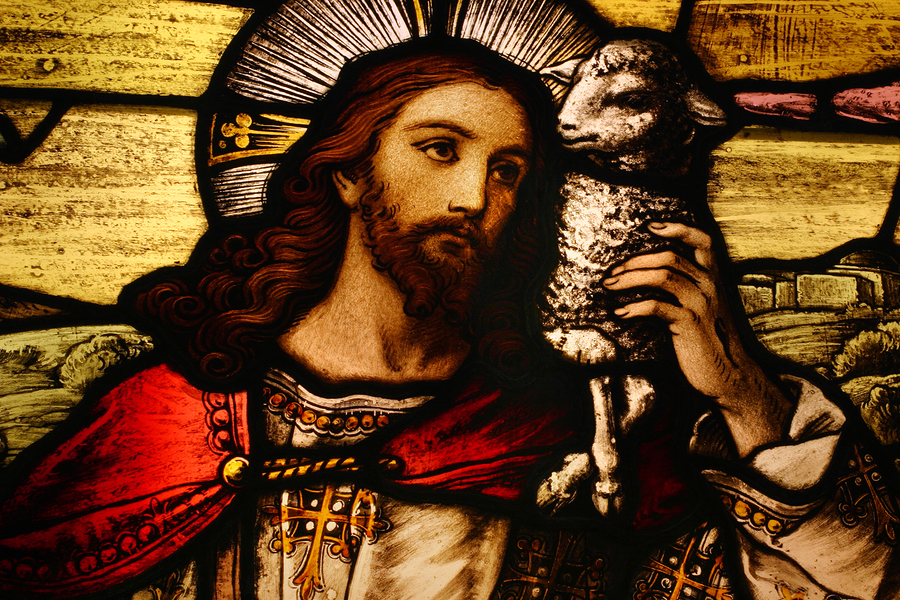
The Good Shepherd
04-26-2020Weekly ReflectionThe 4th Sunday of Easter is often referred to as “Good Shepherd Sunday” because the Gospel every year is that of Jn. 10:1-10, The Good Shepherd’s Discourse. Using two of the most common images in the world of shepherding, the “sheep gate” and the “shepherd,” Jesus alludes these images to Himself. The “Shepherd” image is easy to understand, like a good shepherd, Jesus protects, nourishes, guides, and leads His flock to greener pasture. We rejoice knowing we are under the Blessed care of The Good Shepherd.
The “sheep gate” is in the context of securing the sheep from wild animals and thieves in the evening. In the time of Jesus, shepherds gather their flock into one common sheep enclosure with one single entrance. Literally, the shepherds take turns guarding the sheep by being the sheep gate and keeper, sleeping right within the gate, charged with securing entry and exit to the fold by other shepherds. The sheep gate shepherd” knows whose sheep are in the fold; all shepherds pass through the gate while thieves pass through over the fence. The thieves come only to steal, slaughter, and destroy, but the real shepherds are there to protect and care for the sheep. The voice of the shepherd is also unique, the sheep recognize the voice of their true shepherd. Not only that, the sheep know their shepherd and the shepherd knows his sheep by name. They hear the voice of their shepherd, his voice echo in their ears, like the voice of the Good Shepherd that echoes in the heart of His sheep. It is the gentle and steady voice of a friend, sometimes piercing or penetrating the heart and conscience, it is the voice of the truth, the voice that leads the way, and the voice that leads to life. Jn. 14: 6 “I am the way, truth and the life.” Like the voice of Peter’s spirit filled preaching on Pentecost in the 1st reading. His listeners realized that they are hearing the voice of the Divine Shepherd speaking through Peter, the appointed human shepherd to lead the Church.
If we are faithful sheep, we should hear the voice of our Good Shepherd in this time of the pandemic. We must listen attentively and with all humility, we can hear the voice of the Good Shepherd in Scriptures, in the teachings of the Church, and in the guidance of the wise and true shepherds, and in our daily life with all the opportunities and possibilities.
READ MORE
Spiritual Quarantine
04-19-2020Weekly ReflectionDeacon John C MezydloChurches around the world have had to cancel Sunday services because of the coronavirus. In the Vatican, services for Holy Week, the most sacred time of the liturgical year, will exclude the faithful.
The cancelling of church and sporting events has convinced most Americans that something significant is happening; after all, there is nothing more sacred to Americans than religion and sports. The decision to cancel church gatherings was not easy, but it was correct. Religious leaders who don't follow the advice of public health officials are being reckless and immoral by putting their congregants and others at risk. We know that COVID-19 is usually passed through human contact (handshakes and touching), through droplets in the air (sneezes and coughs) or contact with infected surfaces (doors, pews, hymnals). This is not the time to get scrupulous about Sunday obligations or to worry about Sunday collections.
READ MORE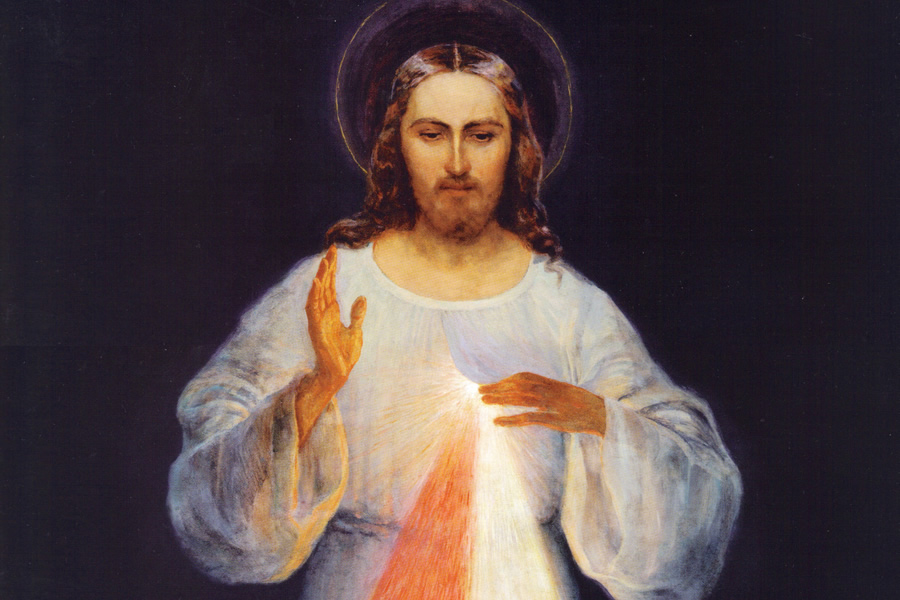
Divine Mercy Sunday
04-12-2020Weekly ReflectionThe Gospel today has two parts: the apparition of Jesus on the first evening of Easter Sunday, also found in the Gospel of Matthew and Luke with slight variations. The second appearance happened a week later proper only in the Gospel of John. “Blessed are those who have not seen and have believed.” (Jn. 20:29) These words are not only intended for the listeners of John but also for us today, who may not believe the testimony of the first witnesses (Disciples), because we have not seen it ourselves.
The disciples received the “Spirit of forgiveness” when Jesus breathed on them, v. 22 “Receive the Holy Spirit.” Like in creation, God breathed on man to give him life. This action means something spiritual happened, the effect of receiving Jesus’ Spirit was immediately obvious, a new found courage and zeal, His disciples possessed, eliminated all their fears. But the greatest effect of conferring His Spirit was His Divine Mercy. Jesus betrayed by Judas and abandoned by His disciples still showed His Divine Mercy to them. Giving them new life, commissioned them to extend His Mercy to others, “Whose sins you forgive are forgiven them, who sins you retain are retained.” (Jn. 20:23)
READ MORE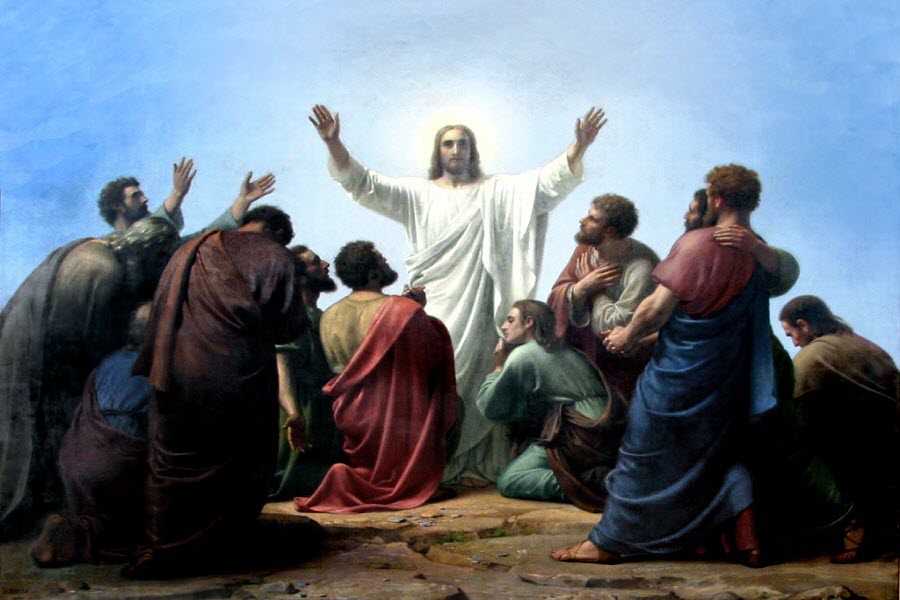
The Risen Lord is with Us
04-05-2020Weekly ReflectionFr. Bing ColasitoThis year, I am celebrating my fifth Easter with the community of St. Rose with the theme: The Risen Lord is with Us. Once again, we are celebrating the greatest feast of Christendom, the Resurrection of our Lord Jesus Christ. It is greater than all other feast, including Christmas. We are saved because our Lord Jesus suffered and died for us. His death was not an ordinary death; it was “the Redemptive Death.” But the whole redemptive act was not limited to His dying, it started the moment He was born, His whole life, death and resurrection. Because without His resurrection, His whole life, suffering and death would be meaningless for our salvation. The resurrection of Jesus marks the crowning of the Father’s salvific work, new life for those whom He saved. It is said to affect the deepest core of our human existence. Why? Because by His resurrection He was transformed into new life, effecting for us a new way of life both here and now and the life to come, opening for us the way to eternal life with His Father. Without His resurrection, death would be an absolute end and there is no hope of an afterlife. Thus, Easter for us my brothers and sisters is not simply professing that Jesus has risen, that He is the Son of God and savior of the world. Easter is professing Him in our hearts, in our lives, living a life professing the Risen Lord is with us. Making His Words our own rule of life, our way of life. Jn. 13:34 “Love one another as I have loved you.” The greatest expression of His love is witnessed in the love we have for one another. He is truly risen.
READ MORE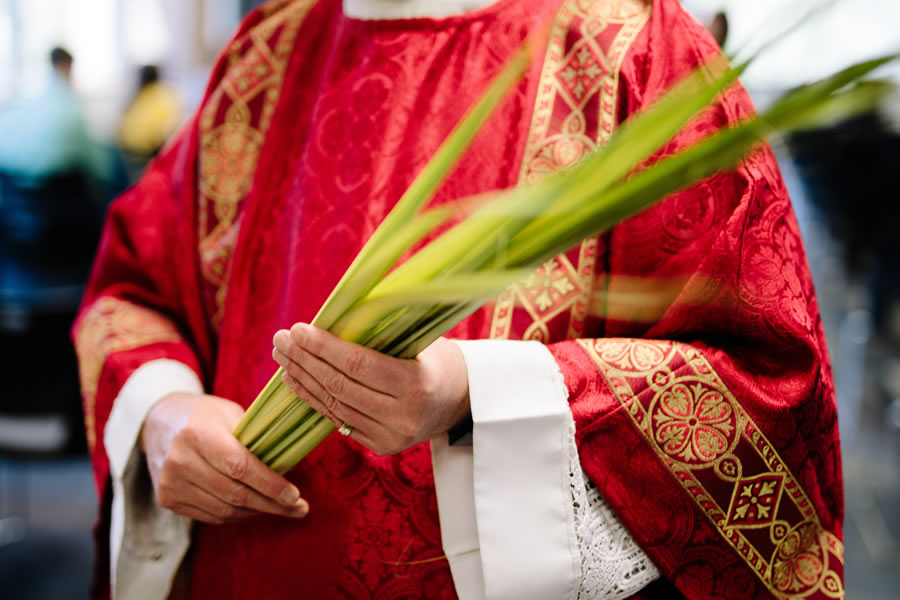
Palm Sunday: My Journey this Holy Week
03-29-2020Weekly ReflectionFr. Bing ColasitoToday begins the most solemn week of the whole Christendom, Holy Week. This year’s Holy Week will probably be the most memorable of all the Holy Week celebrations in my twenty years as a priest. We have journeyed forty days this season of Lent, as we moved through Lent, we intensified our prayer, fasting and acts of charity. At the same time, another phenomenon intensified during this season, the spread of CoVid 19. It spread to a rate never experienced before in our life time, until it finally reached a pandemic proportion. At the end of Lent and as we enter Holy Week, I pray that we all have experienced intense grace, not being able to receive Jesus in the Eucharist hopefully increased our longing for that full communion with Jesus, in His Body and Blood. Let us continue to pray with a fervent heart and soul, the Spiritual Communion Prayer. “My Jesus, I believe that You are present in the Most Holy Sacrament. I love You above all things, and I desire to receive You into my soul. Since I cannot at this moment receive You sacramentally, come at least spiritually into my heart. I embrace You as if You were already there and unite myself wholly to You. Never permit me to be separated from You. Amen.”
READ MORE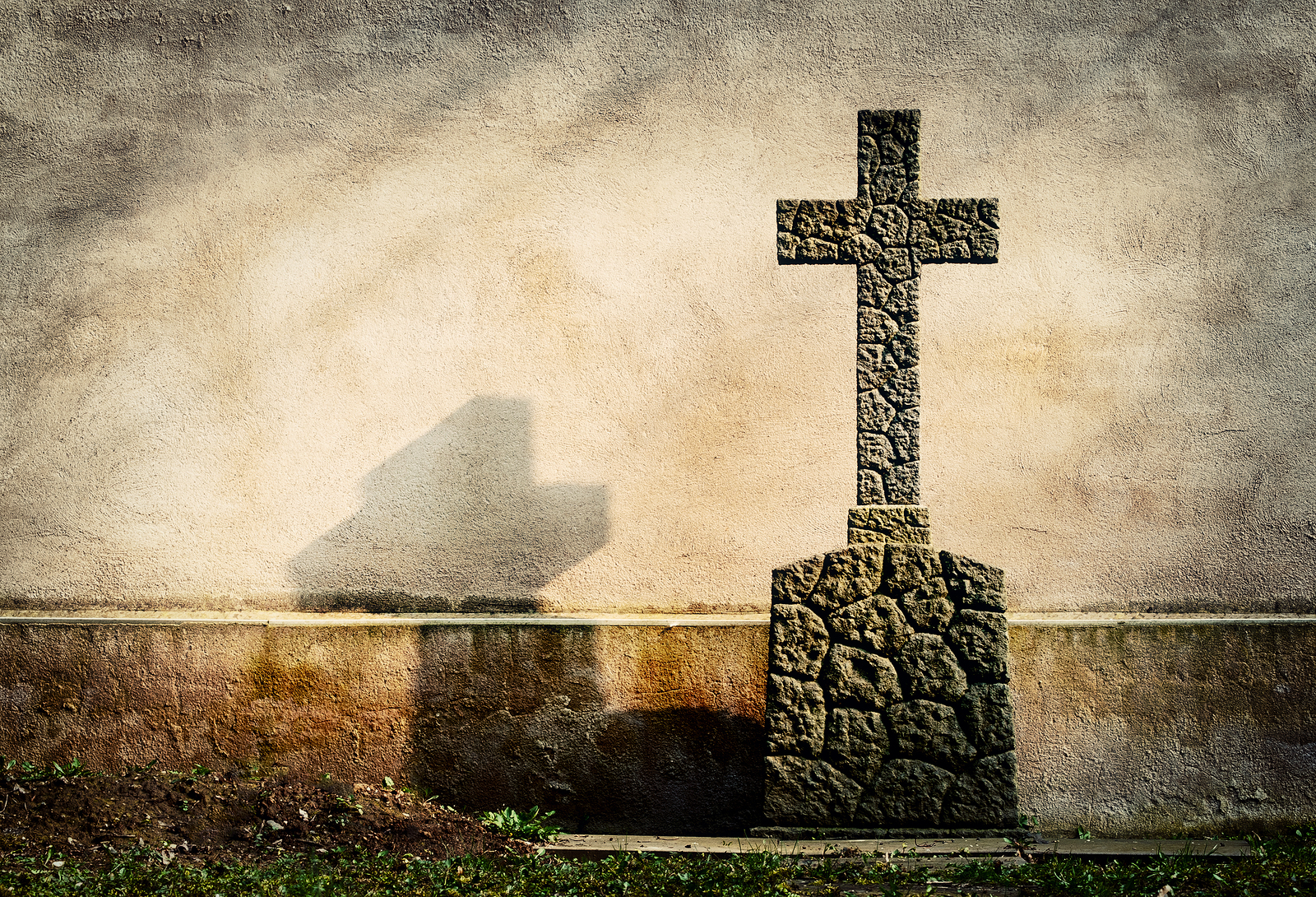
Death and New Life
03-22-2020Weekly ReflectionIn this Gospel, there are many known Jewish burial practices that was cited. The dead are immediately buried on the same day. The corpse is washed and wrapped in burial cloths, followed by a public procession to the burial site usually a cave tomb. Then the seven days of mourning, where the immediate family of the deceased are taken care of by the neighbors who take turn visiting them. The length of mourning can extend to 30 days, and in some instances for a year. After a year, the bones are collected and for those who can afford it, are placed in a burial box called an ossuary.
READ MORE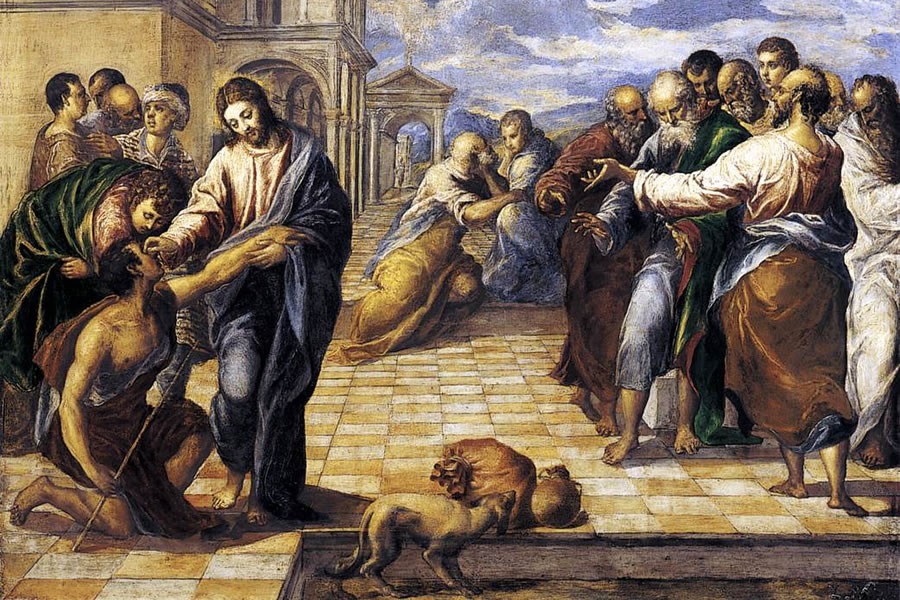
Light as Illumination and Judgement
03-15-2020Weekly ReflectionBeginning in John 7, when Jesus went to Jerusalem for the Feast of the Tabernacle, He became a marked man, His presence created different reactions. Many people are starting to believe that He is the Messiah but they cannot reconcile the fact that He is from Galilee. Because Scriptures said that the Messiah will come from Bethlehem, the City of David. If only they knew that He was indeed born in Bethlehem. In John 8, Jesus had to leave the temple because of the Jewish leader’s instigated threat to kill Him. John 9 builds on this contrast of pros and cons with Jesus with the account of the blind man. After the incident of the woman caught in adultery, in Jn. 8:12 Jesus says, “I am the light of the world...” The whole of Jn. 9 presents what it means for Jesus to be “light of the world.” Two key concepts of His being the “light”, first, He revealed Himself as the light and life. Second, the presence of Jesus creates a sense of standard, an occasion for judgement, His good Words and Deeds present a contrast to what evil men do.
READ MORE
Prayer During Lent
03-08-2020Weekly ReflectionWhat do we do when we’re facing an upcoming big event, celebration, or special occasion in our lives? We prepare for it. Holy Week and Easter are “big events” in the liturgical year of the Church and in the spiritual life of a Christian. So, as Christians, we prepare spiritually for these through the forty days of Lent. This means that, during Lent, we rededicate ourselves to prayer.
There are as many ways to pray as there are prayers in this world, but a few prayer methods can help us in particular to spiritually prepare ourselves during Lent:
1. Make your abstinence a prayer-in-action.
READ MORE
Novel Coronavirus
03-01-2020Weekly ReflectionFr. Bing ColasitoFor the past week we have been hearing of the news about the highly contagious Novel Coronavirus nCoV, and how it has spread and infected thousands, the great number of which are in main land China, but have spread to many other countries. Since then I have received so many inquiries and suggestions of taking precautionary measures, also, with the flu season still around. For this reason, St. Rose will be implementing the following: Based on the Flu Policy of the Diocese of Phoenix, Level I: (heightened awareness, voluntary precautions).
- Encourage the Faithful who are sick to stay home. Though it is true that it is a grave matter to miss mass on Sundays and holydays, this never applies to those who are ill, especially those who are contagious or display flu-like symptoms. READ MORE
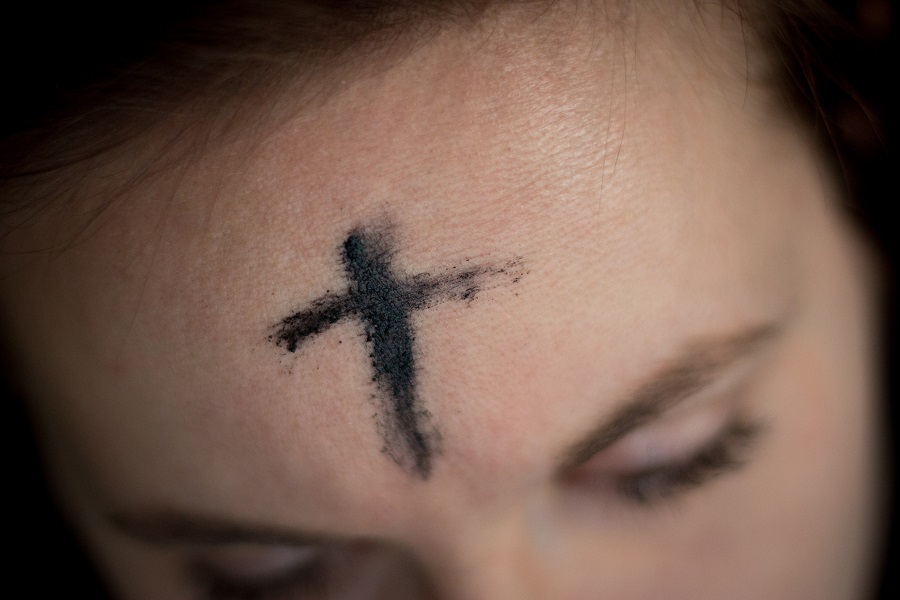
Questions and Answers about Lent and Lenten Practices
02-23-2020Weekly ReflectionQ. Why do we say that there are forty days of Lent? When you count all the days from Ash Wednesday through Holy Saturday, there are 46.
A. It might be more accurate to say that there is the "forty day fast within Lent." Historically, Lent has varied from a week to three weeks to the present configuration of 46 days. The forty day fast, however, has been more stable. The Sundays of Lent are certainly part of the Time of Lent, but they are not prescribed days of fast and abstinence.
Q. So does that mean that when we give something up for Lent, such as candy, we can have it on Sundays?
READ MORE
Novel Coronavirus
02-16-2020Weekly ReflectionFr. Bing ColasitoMy Dear Brothers and Sisters,
The peace and love of Christ be with you! For the past week we have been hearing of the news about the highly contagious Novel Coronavirus nCoV, and how it has spread and infected thousands, the great number of which are in main land China, but have spread to many other countries. Since then I have received so many inquiries and suggestions of taking precautionary measure, plus, with the flu season still around. For this reason, St. Rose will be implementing the following:
Based on the Flu Policy of the Diocese of Phoenix, Level I:
READ MORE
Sixth Sunday Ordinary Time: Heart Prints: Live by the Heart of the Law
02-09-2020Weekly ReflectionOne of the highest attributes in the Messianic expectation is that the Messiah will be the ultimate interpreter of the Law, the Torah. Jesus saying that: “He has come to fulfill them”, drawing some parallel with Moses, goes beyond their expectations by putting Himself in the level of the giver of the Law, God. He is above the Law, what He teaches is the true value of the Law as His Father intended it for the people of God through Moses. He perfects it by giving a definitive interpretation of the Law, His divinity gives Him the authority to do it. He even added His own teaching to it, in v.18 Jesus did not come to abolish the precepts of the Law but demonstrate its significance to our life and how to bring the Law to its perfection. St. Augustine says, Jesus words and interpretation are the perfect expression of the Christian Life.
READ MORE
Fifth Sunday in Ordinary Time: The Salt and Light of the World
02-02-2020Weekly ReflectionThe theme that precedes the Gospel this Sunday is the famous: The Sermon on the Mount (Mt. 5:1-12). Immediately after Jesus started His ministry, He made clear His mission: Mt. 4:17 “Repent for the Kingdom of Heaven is at hand…” His Sermon, called the Beatitudes, is the major discourse in the Gospel of Matthew where He outlined what it means to live in the Kingdom of Heaven. Jesus laid out the fundamental attitude His disciples must develop in their relationship with God as their Father, Him as their Lord and savior, with one another as children of God, and extended to everyone, much like an ethical principle for being disciples.
READ MORE